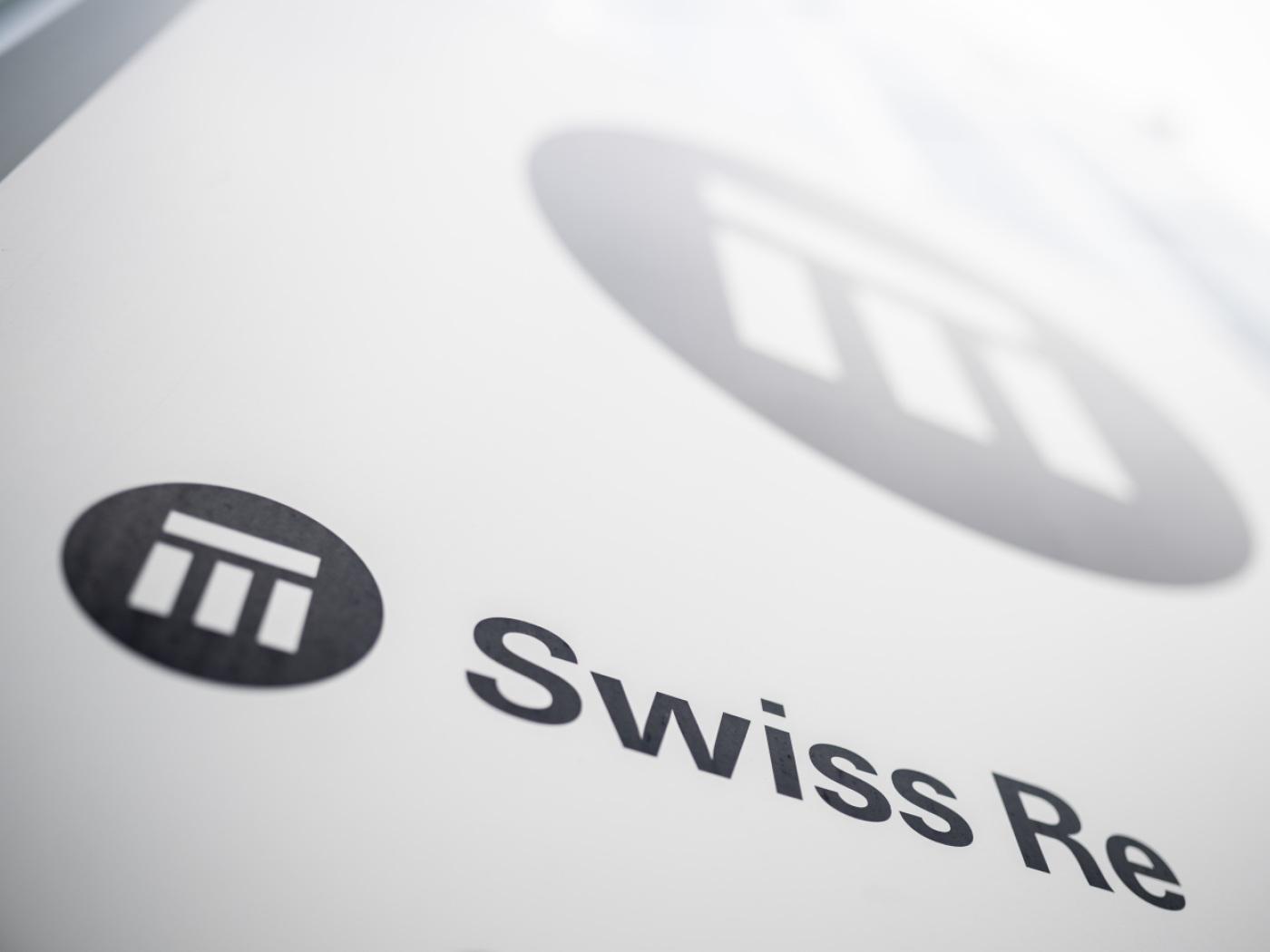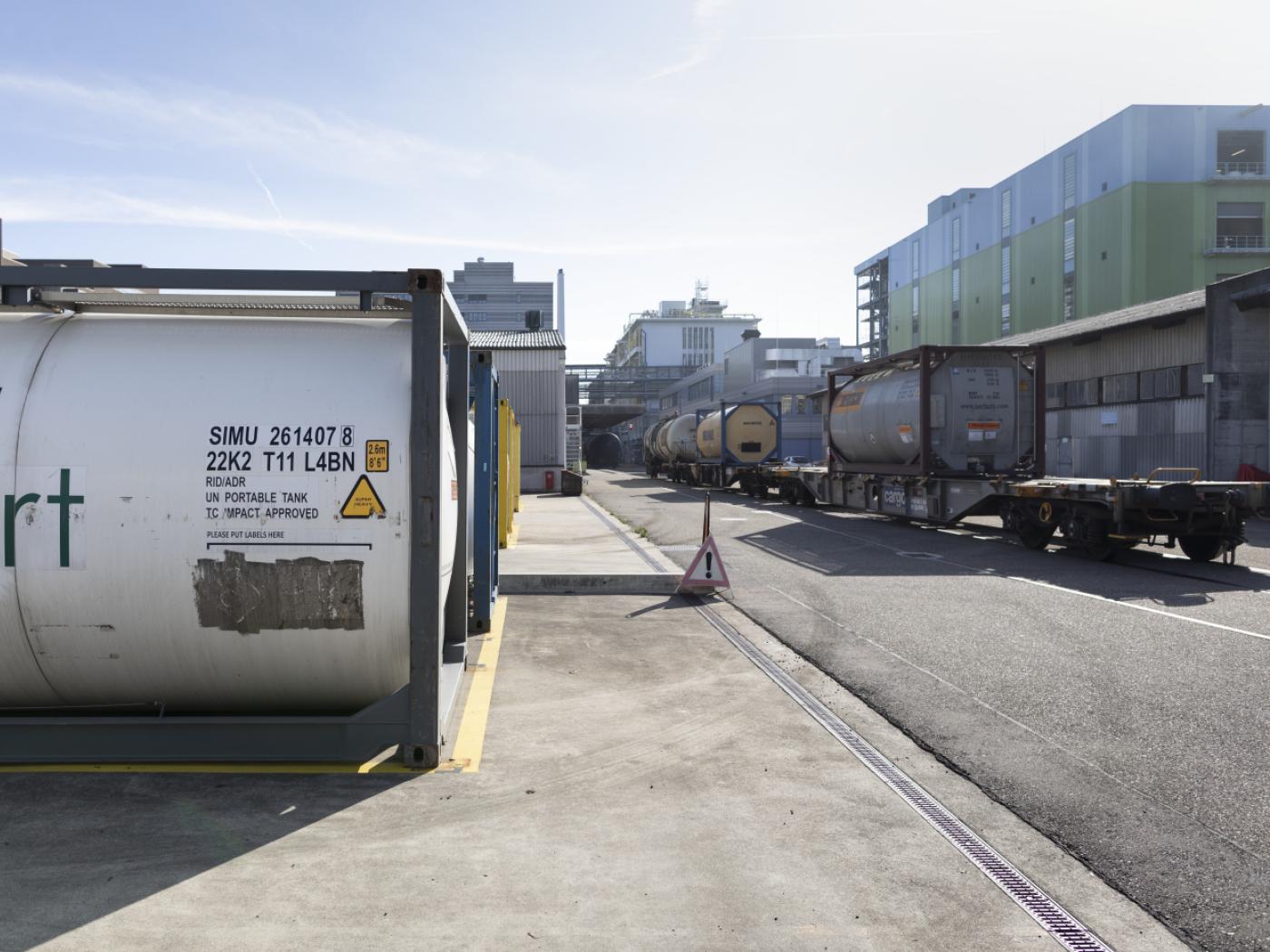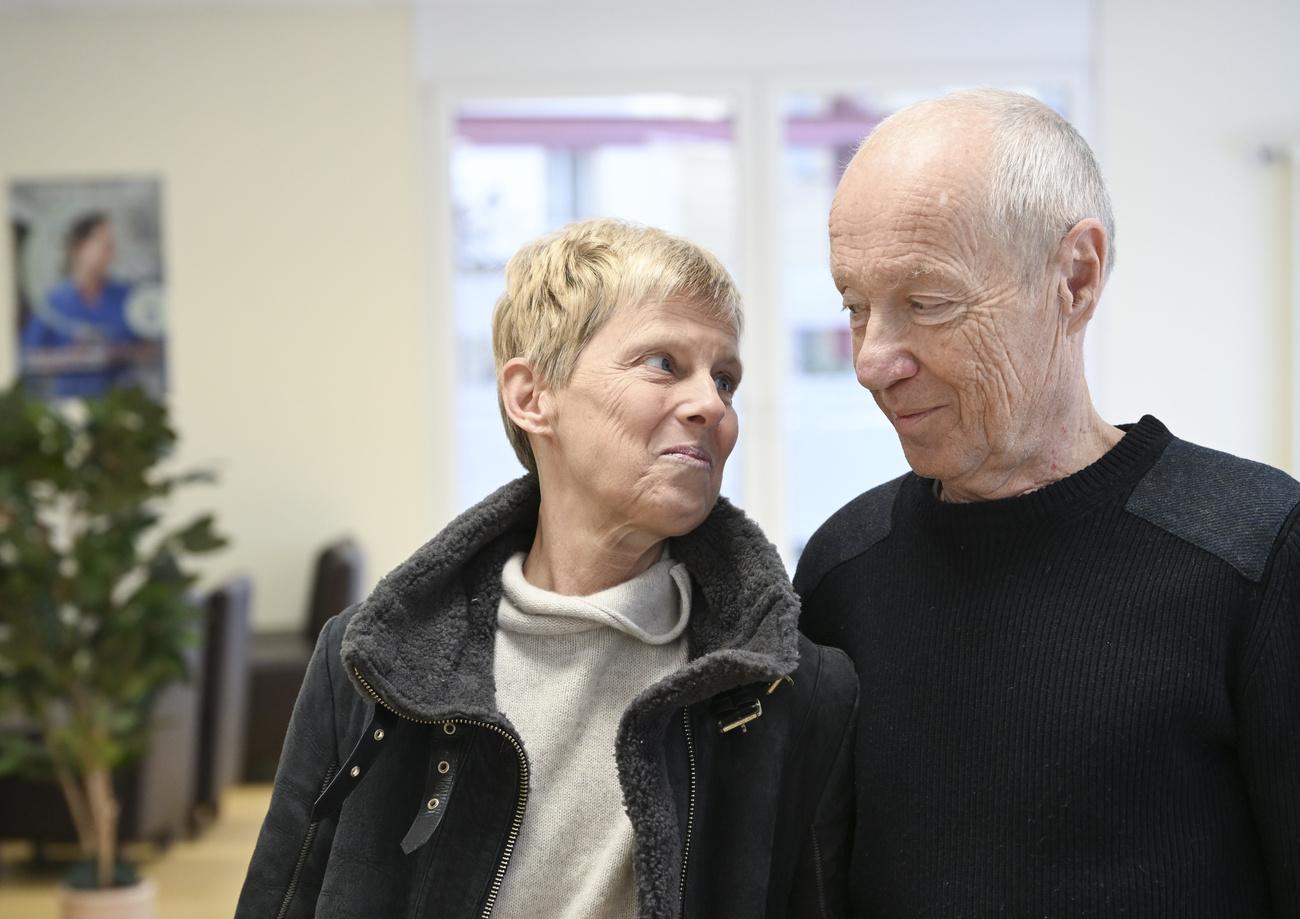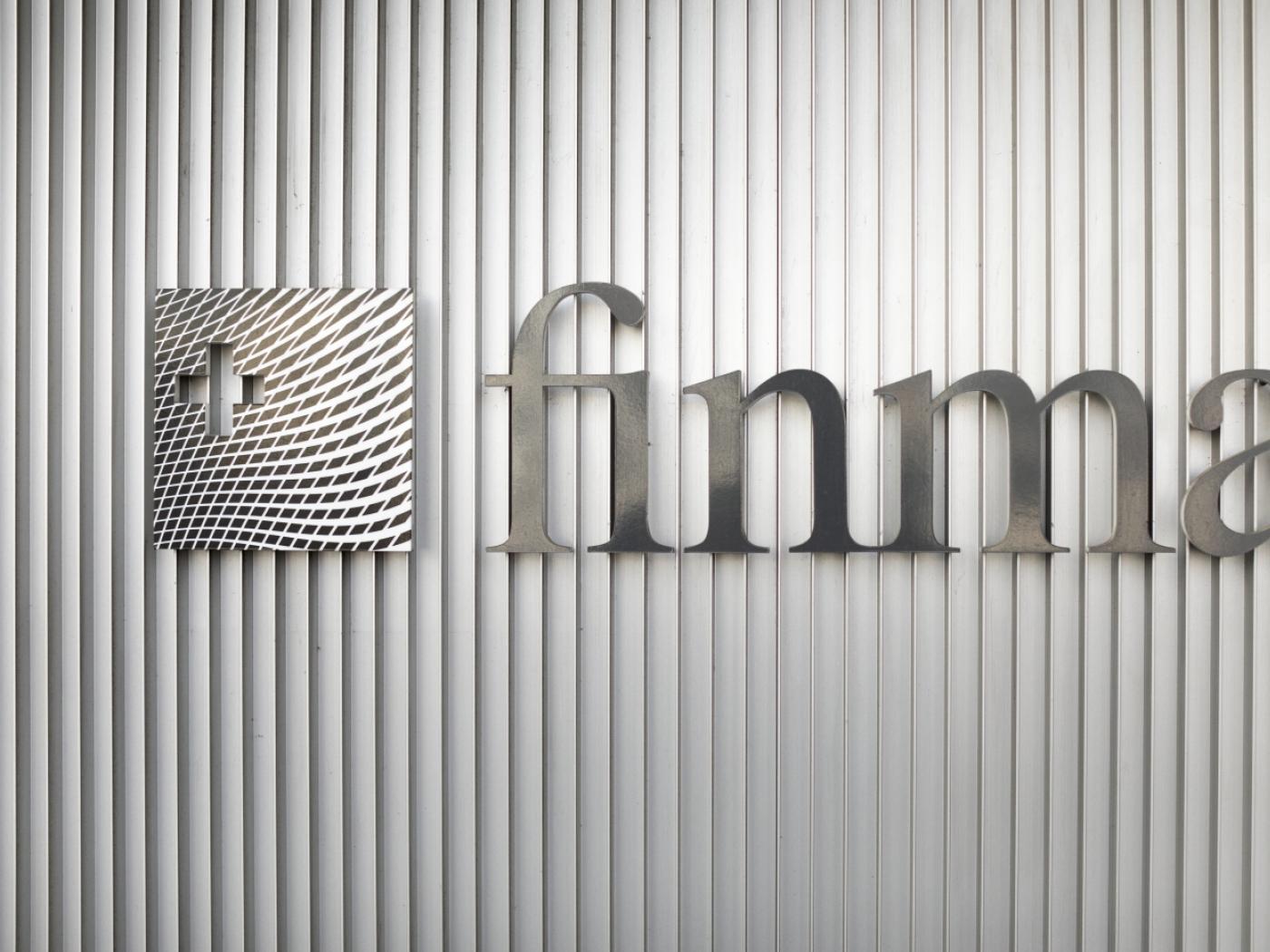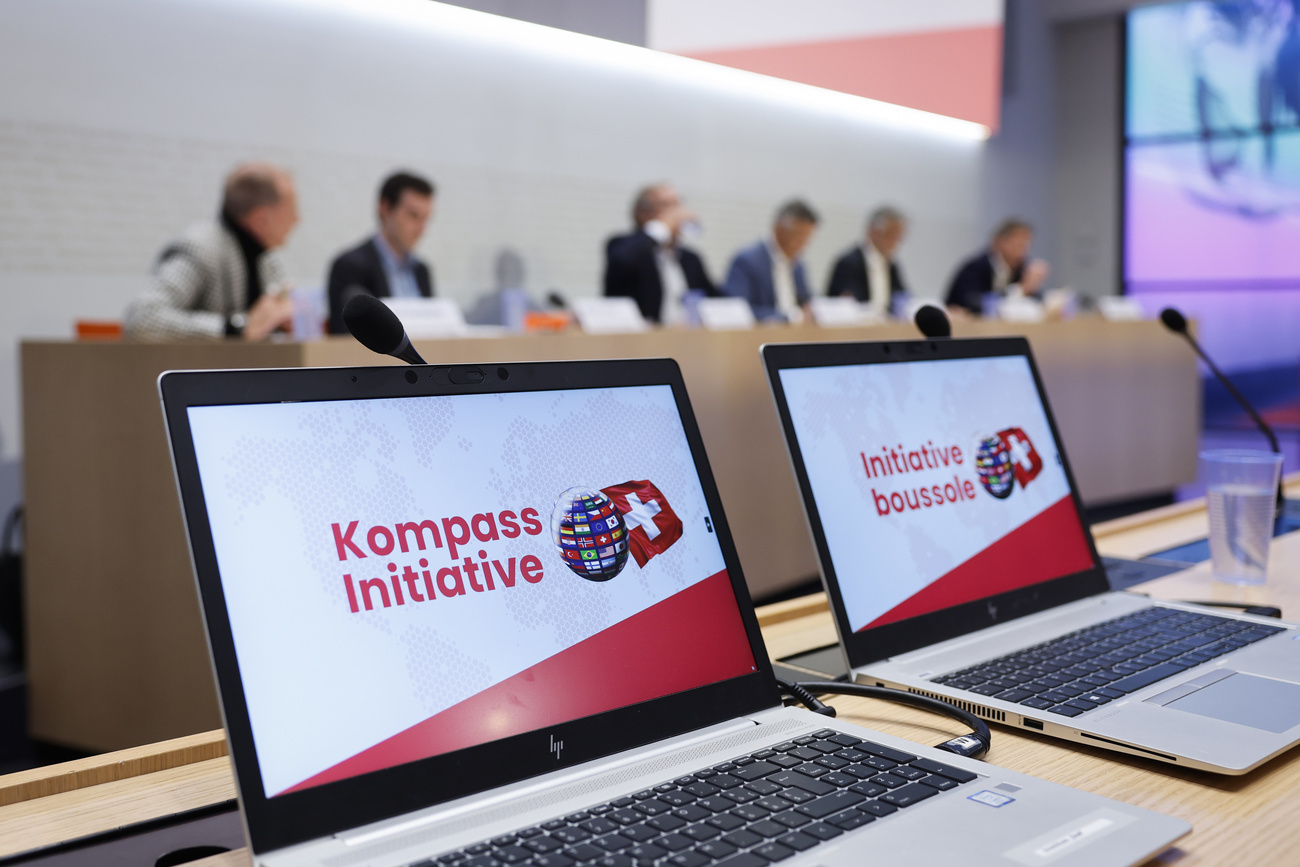
Negotiations for new agreements between Switzerland and the European Union are nearing conclusion. However, the "Compass Initiative", driven by influential billionaires, seeks to raise the bar for these agreements. Swiss public television, SRF, has been closely following the initiative's key figures in recent weeks.
It’s a typical Thursday afternoon in November. A Porsche emerges from an underground car park in Schindellegi, in canton Schwyz. Urs Wietlisbach, a co-founder of Partners Group, is on his way to canton Schaffhausen, where he will deliver one of many lectures this autumn. His message is consistent: Switzerland should resist closer ties with the EU.
Wietlisbach describes his motivations as rooted in a deep concern for Switzerland’s future: “I’m afraid we’re importing a lot of bureaucracy from the EU and levelling down to EU standards.”
The Compass Initiative calls for important treaties to be approved by the people and the cantons. The aim behind this is to prevent new agreements with the EU, such as those the federal government is currently negotiating with Brussels. According to the website, the focus is on preventing the “dynamic adoption of law”.
He argues that Switzerland currently surpasses EU member states in areas such as income and debt levels: “If we move closer to the EU, we will end up in the same waters.”
+ The Swiss are deeply divided over relations with the EU
The Compass Initiative’s opposition
The initiative strongly opposes the agreements being negotiated between Brussels and Bern. Speaking to an audience of about 100 in Schaffhausen, Wietlisbach used stark language to highlight the risks he sees: “This dynamic adoption of legislation is intended to institutionally push us under the EU.”
Concerns about “levelling down” feature prominently in his rhetoric, alongside warnings about foreign judges and laws encroaching on Swiss sovereignty. He contends that reduced access to the EU’s internal market would be a better alternative than what he describes as subjugation.
+ Switzerland and EU want to negotiate, but optimism is limited
Diverging views on economic impact
Entrepreneur Eva Jaisli, president of PB Swiss Tools’ board of directors, disputes the initiative’s perspective. PB Swiss Tools exports 70% of its products, with two-thirds going to the EU. She believes the Compass Initiative overlooks the importance of the Swiss tech sector’s economic ties with the EU: “Export activity strengthens innovation and secures jobs and apprenticeships.”
Since the bilateral agreements with the EU began, Switzerland’s GDP has grown steadily. Jaisli warns that if these agreements are not extended, Swiss companies, particularly in tech, might relocate to the EU to maintain access to its single market: “Then we would see an exodus of training places, expertise and innovation. That’s not what we want.”
+ Union leader sceptical of Swiss-EU negotiations
‘Switzerland as a success story’
Compass Initiative members, including Wietlisbach’s business partner Alfred Gantner, claim Switzerland thrives precisely because of its limited EU ties. Gantner, another influential figure in the financial sector, views the initiative as a necessary intervention by concerned entrepreneurs: “We keep hearing that entrepreneurs don’t get involved enough. Kompass Europe already has over 3,000 members, many of them business leaders, contributing to this effort. Yet, such involvement is often met with suspicion.”
With negotiations set to conclude, the Compass Initiative continues to challenge the proposed EU agreements, framing the debate as one of sovereignty versus integration.
Translated from German by amva/ts
Full story here Are you the author? Previous post See more for Next postTags: Featured,newsletter
























